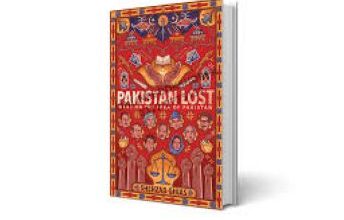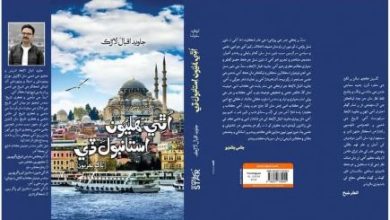In the Kingdom of Death (War Chronicle/Diaries) – Part 8

Fehmi Ajvazi, an eminent author from Kosovo, has shared his book ‘In the Kingdom of Death’ published in Albanian in 2012 in Pristina, and in Romanian in 2019, and was translated from Albanian to English

[In March 1999, the Serbian regime blanketed Kosovo with a contingent of 120,000 regular police, military, and civilian paramilitary forces. Just about two weeks before NATO’s intervention in Kosovo began, the region was surrounded on all sides, while pockets of the interior (villages and towns) were hit with arrests, liquidations, and massacres. Kosovo became a reservation. A kingdom called the “Kingdom of Death” established authority everywhere! However, some areas were controlled by insurgent liberation forces, and in some places, Serbian forces couldn’t penetrate. Well, the hatred between Serbs and Albanians was the same, but the bullets were the same too: they brought death to everyone, and it was no problem for the “bullet” whether the target was Albanian or Serbian. I mean, the forces of the Kosovo Liberation Army held some territory and kept it free! But about ten days before NATO planes launched their attack in their battle for Kosovo, Albanian insurgents managed to have the world’s most powerful force as their ally: the NATO alliance. However, no one had managed to master a pact with death. Just a few days before March 24th, the “Lady of Death” was the ruler of Kosovo, in reality, she was the ruler of the Albanian citizens of this extremely small territory! And for the third time in history, the state of Serbia wanted nothing more and nothing less than: the ethnic cleansing of Kosovo. Over 1 million residents before March 24, 1999, challenged “this kingdom” by saying, “Here we are, your power is not the power of God!” I had decided to stay, not to leave. I was a journalist, but also a creator. And so, I had no idea what dilemmas lay in this direction, despite the open threats from the Serbs, and I knew well that they would try to wash their hands of us like Pontius Pilate! Regardless of every situation and circumstance, I sacrificed to be a witness to a time and a history without parallel! Yes, a witness…! And everything I have said and written about literary-historical conditions is in this book – a testimony. Therefore, this book is a source and my personal experience of a time I pray will never be repeated – anywhere. Just as I pray for the souls of those who did not come out alive in this “kingdom of death” in the third millennium! Read the truth about Kosovo… Author]
I was lost in a world of thoughts. My head was starting to ache severely. I was dizzy. It felt like I was in the middle of a fog, except I knew I was waiting for the bus while occasionally imagining everything bad (but everything) and therefore barely noticing the buildings, various vehicles, the streets, and alleyways filled with people, Albanians, Serbs, Roma, and others.
As I waited for the bus, Kujtim Thaçi, a student of Technical Sciences from the village of Sopniq, Rahovec municipality, came up to me. While greeting me, he truly shook me out of the daze I was falling into.
– Where are you heading? I asked immediately as we met unexpectedly. Do you know that it’s not safe to be out on the streets today…?”

I told him with a controlled tone. He had taken the streets somewhere, a risky move, as they say, while he, in no way, should have been outside the apartment walls. He seemed concerned, to say the least, bewildered. Kujtim was a student and relatively young. His concern was entirely natural and reasonable. The Serbian police had targeted (above all) Albanian youth and especially students, so they acted violently and mercilessly towards them. They would arrest them everywhere, torture them, kill them, and deport them from Kosovo. The risk for young people and students was significant if they were stopped and identified by the police, and this risk was even greater when they were stopped and identified by the police, and from the “identification,” it would become clear that they were not from Pristina. No questions asked afterward! This risk (on that day) was three times greater for Kujtim, who, in fact, not only was not from Pristina but was from a well-known war-torn region, such as Rahovec. If he were to be stopped and identified, no questions asked!
– I’m changing my place of residence, he replied nervously. I’m going to Ulpiana neighborhood. I’m going because, near ‘Rrethi,’ some friends live. At Mefa…!”
He had taken a few personal items with him. We said our goodbyes as always, hugging each other and looking into each other’s eyes for the last time. We didn’t say any other words because what could we say…?
The crowded city bus number 4 arrived slowly, enveloped, undoubtedly, in hazy leaden images, leaving behind the familiar neighborhood of “Qafa,” its dimly lit corners, cafes, cigarette vendors, hundreds and thousands of faces blended into dots and dashes in the hours of this Balkan day of catharsis. With many of them, meaning hundreds of people, I had continuously shared the worries of youth and studies, the concerns of journalism, which was never an easy profession in Kosovo, the political concerns about our situation, and the worries about the occupied time. With many of them, meaning hundreds of these “faces,” we shared the belief that Kosovo (especially after the Dayton Conference) was not just occupied by Serbia, and this was no longer an illusion; Serbian occupation was becoming increasingly unbearable. We also shared the belief that although the political concept of peaceful resistance, led by Dr. Rugova, was a historical and ideal concept from a political and humane standpoint, something needed to change, without a doubt. Serbia couldn’t be removed from Kosovo peacefully, especially after the political advantage Serbia had gained internationally with the signing of the Dayton Agreement. When I entered the room (loaded with some food items, a few bottles of fruit juice, and three to four liters of milk), my wife, Shpresa, saw me and instantly looked as pale as Haifa lemons. She stared at me in silence, completely lost. She understood why I had stocked up like that. I had also bought some cigarette packs and two liters of Russian vodka. Vodka had been increasingly consumed in Pristina lately because it was cheaper and not too bad. She looked at me, utterly saddened, without saying a word. She was shocked, and she must have been very frightened. As she continued to gaze at me as if she had never seen me before, she stood in front of me, not daring to ask any questions, and more ready than ever to break into tears. Her condition immediately saddened me. I carelessly placed all the purchased items in a corner of the kitchen floor. I sat down, disconnected, on the couch. Lit a cigarette. The pain engulfed me like never before. The essence of her pain was profound in terms of its naturalness and the situation we were entering. We hadn’t been married for even two years. Then, it was just us. Just the two of us. The two of us with a baby in our arms. In the whirlwind of emotions that were tearing me apart, I was gradually realizing, like never before, that I was utterly powerless to say something, to do something, in front of my wife and in front of a child. I felt even more powerless towards others, towards the extended family, towards friends and acquaintances, towards my people, towards my roots. I had no one to help and no one to help me, and there was no one to help me or how to help me.

A strange, disorienting space, a world filled with pain, an endless universe, was not gripping my body but my soul. Shpresa was standing in front of me with a saddened look in her eyes. She remained quiet and sad, as if caught between the real world and the unreal. Faded by fear and a loss of clear thought, she looked at me as if for the last time. I had lost my words and thoughts as well. A seemingly inexplicable unease was overcoming me. A pervasive sense of insecurity was taking hold. Should I speak openly, or was everything already said? No, there was no need for words, no need for comments. Both of us understood the helplessness enveloping us, but also the fact that we were together in a potentially dangerous situation, filled with so many unknowns and terrifying imaginings. I had no idea what to do, how to act, and where to find support to break the heavy silence that had engulfed both of us, to break the silence of death. And the silence needed to be broken. But instead of taking that step in front of her, meaning breaking the silence by saying something, anything, suddenly what came to my mind was what jolted me back to life: the violence, along with the massacre. I looked directly into her eyes, trying to conceal my emotions, my tumultuous feelings. And she stood before me like an ancient Egyptian mummy. Finally, I spoke, stammering, as if from another world:

– Listen here, my wife, whatever happens, you must remember that we’re doing this for our people and our country. In other words, the fact that we’re in Kosovo today is a sacrifice in itself. Don’t doubt it. This is a historic moment, and history, as we know it, is made by people, not animals. Animals don’t have human history. They have animal history. Do you understand me? Therefore, no matter what happens, it seems to me that this should be a mostly joyful day because it will be the day that changes our current time, our future time, forever. Even though it hasn’t started yet, it seems…
– The Oath is calling from Germany, Dan’s little one, interrupted by Betimi, the son of my uncle Dan (Ramadan Sinani, a journalist and writer from Tetovo, was the owner of the apartment where we lived).
– Why, for what? My words froze in my throat, and my mouth said it instantly. Everything was becoming clearer to me: NATO was definitely going to launch the attacks. But along with NATO’s aerial attacks, the Serbian genocide against us would also start on the ground. Hasn’t it already begun? So, the questions “why” and “what” directed at Shpresa were deliberate to keep her from losing her mind, from worrying outside of normality, and from creating the absolute conviction that “it will start” regarding what “is expected to start,” while “it still hasn’t begun.” (Continues)
Click here for Part-1, Part-2, Part-3, Part-4, Part-5, Part-6, Part-7,
______________________




